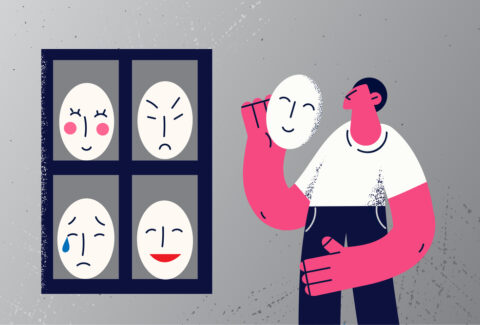Further Applications of CBT
Since CBT is a psycho-social intervention, we are always touching upon both the psychology and the social aspects of our patients and clients when using this treatment modality. Though I may be focusing on a specific cause of tension, I am also keeping in mind the person as a whole, being comprehensive and holistic, to ensure that CBT is the most effective treatment modality to use for as many of our patients and clients as possible.
 As we do this, we confirm the aim of CBT, which is to improve the individual’s health, as a whole, remembering what health really means. According to WHO (World Health Organization), health is not just the mere absence of disease. Rather, it is a state of complete physical, mental, and social well-being. This is a powerful definition, which has been adopted by all health authorities around the world. Putting it into practice, however, is still something that requires daily effort toward ongoing improvement. This ongoing improvement can be accelerated with what researchers indicated as an organism’s ability to adapt to new threats and infirmities. This specific definition is particularly important because it stresses the importance of resilience and prevention. Though used less often then they could be, these are all essential aspects of CBT related to promoting resilience, helping mitigate risks, and preventing the progression or worsening of a particular symptom.
 This aspect of CBT has been used in psychosis, most notably, in first episode, prodromal, and even early symptoms. In fact, several studies have shown that CBT may lead to more favorable outcomes than medications, while at times concomitant use of CBT and antipsychotics may lead to less favorable outcomes compared to using CBT alone. Needless to say, these studies are not for individuals with an established diagnosis of Schizophrenia, rather for those with prodromal, or early symptoms, or even first episode psychosis. Of course, for those with an already established diagnosis of Schizophrenia, CBT can help with residual symptoms or make up for where medications may not be enough but cannot be increased further due to side effects.
 Unfortunately, many of us in the health community may not be aware of all the applications of CBT. Part of this is because we are so entrenched into the disease model, into fixing what is not working, forgetting that, that which our patients, clients, the people we serve come into treatment for is only part of the whole of who they are.

CBT has several applications that are not often explored by most of us clinicians. Yet, these are applications that are needed to support our patients and clients in both their psychology and their social aspect. As Aristotle said, “To do we must learn and to learn we must do,†and this is why our next CBT certificate course will include both of these elements of learning and doing. We are planning a hands-on certificate course, where we will be walking together through each practical step of a real CBT treatment from one to the next. There will be cases designed to stimulate us that we will use throughout the 16 weeks to experience the evolution, problem-solving process, and the how of moving things along and go from one step to the next.
 We look forward to seeing you in February. Meanwhile, remember to practice everything we have been learning in Edition 1 and Edition 2 of our CBT Certificate Course. They will serve you well for Edition 3. Furthermore, please consider reviewing some of the modules using the self-study versions. We wish you happy holidays, happy practicing, and, more importantly, happy skill enhancement.
Until soon,
Karen and Mardoche
About the Authors:
Karen Dubin-McKnight, PhD, LCSW, is a Columbia-trained Social Worker with wide clinical, teaching, and supervision experience. She also has a background in management, mentorship, and leadership that spans almost 20 years. Her added passion is in advocacy, coaching, public relations, and mediation. Her goal is to ensure that social workers and women feel empowered and have a voice “at the table.†She has previously held Executive level positions, and two other directorships in different organizations. She is currently Adjunct Faculty at Columbia University School of Social Work and Adelphi University School of Social Work. She also maintains a private practice, working with individuals who have experienced loss and trauma, and also provides clinical and management supervision.
Mardoche Sidor, MD is a quadruple board-certified psychiatrist, with board certifications in Psychiatry and Neurology (General Adult Psychiatry), Child and Adolescent, Addiction, and Forensic, Psychiatry. He has training in public and community psychiatry, and advanced training in psychopharmacology, Cognitive Behavioral Therapy, Family Therapy, Motivational Interviewing, and Strategic Intervention. He also has additional training in Dialectical Behavioral Therapy, Psychodynamic psychotherapy, Play therapy, and Couples therapy. He has clinical, teaching, and supervision, experience; he has mentorship, coaching, and management, skills and experience; and he has experience as a primary care physician, in public speaking and writing. His overall purpose is to help heal the world, through an increase in awareness, a shift in belief systems, and an education that empowers. He speaks and writes fluently in four (4) languages—French, English, Spanish, and Creole, with intermediate proficiency in Portuguese and Italian. Dr. Sidor is the author of 3 books and is currently working on several others.









